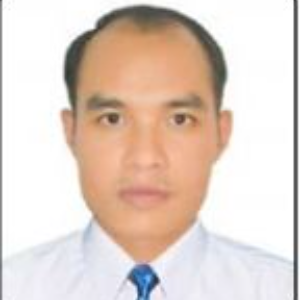HYBRID EVENT: You can participate in person at Barcelona, Spain from your home or work.
WAC 2023
Antibacterial effect of wedelia grass extract (wedelia chinensis) toward Vibrio parahaemolyticus isolated from infected white leg shrimp (Litopenaeus vannamei) of acute hepatopancreas necrosis disease

University of Agriculture and Forestry, Vietnam
Biography:
Tran Nguyen Ngoc obtained Bachelor’s in Aquaculture in 2010 and a Master’s in Aquaculture in 2012 at the University of Agriculture and Forestry, Hue University. Since 2013, he has been appointed as a lecturer at the Faculty of Fishery, University of Agriculture and Forestry. He is giving a lecture on Fish Physiology to a second-year student of Aquaculture and Fish Pathology/Currently, and he is a first-year Ph.D. candidate in the Aquaculture program and studying the using herb in the prevention and treatment of bacterial diseases in shrimp.


